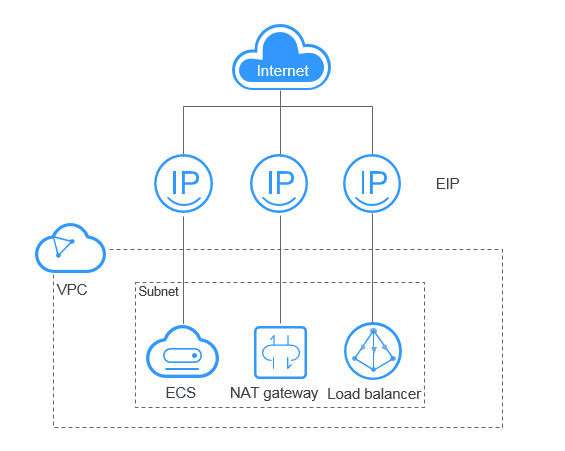What Is Elastic IP?
Introduction
The Elastic IP (EIP) service enables your cloud resources to communicate with the Internet using static public IP addresses and scalable bandwidths. A resource with an EIP can access the Internet directly, but a resource with only a private IP address cannot.
EIP
EIPs can be bound to or unbound from ECSs, BMSs, virtual IP addresses, NAT gateways, or load balancers.
Each EIP can be bound to only one cloud resource.
- Each EIP can be bound to only one ECS. If an EIP has been bound to an ECS, it cannot be bound to other cloud resources. You need to unbind the EIP from the ECS before binding it to another cloud resource in the same region.
- The EIP and the ECS must be in the same region.

Feedback
Was this page helpful?
Provide feedbackThank you very much for your feedback. We will continue working to improve the documentation.









